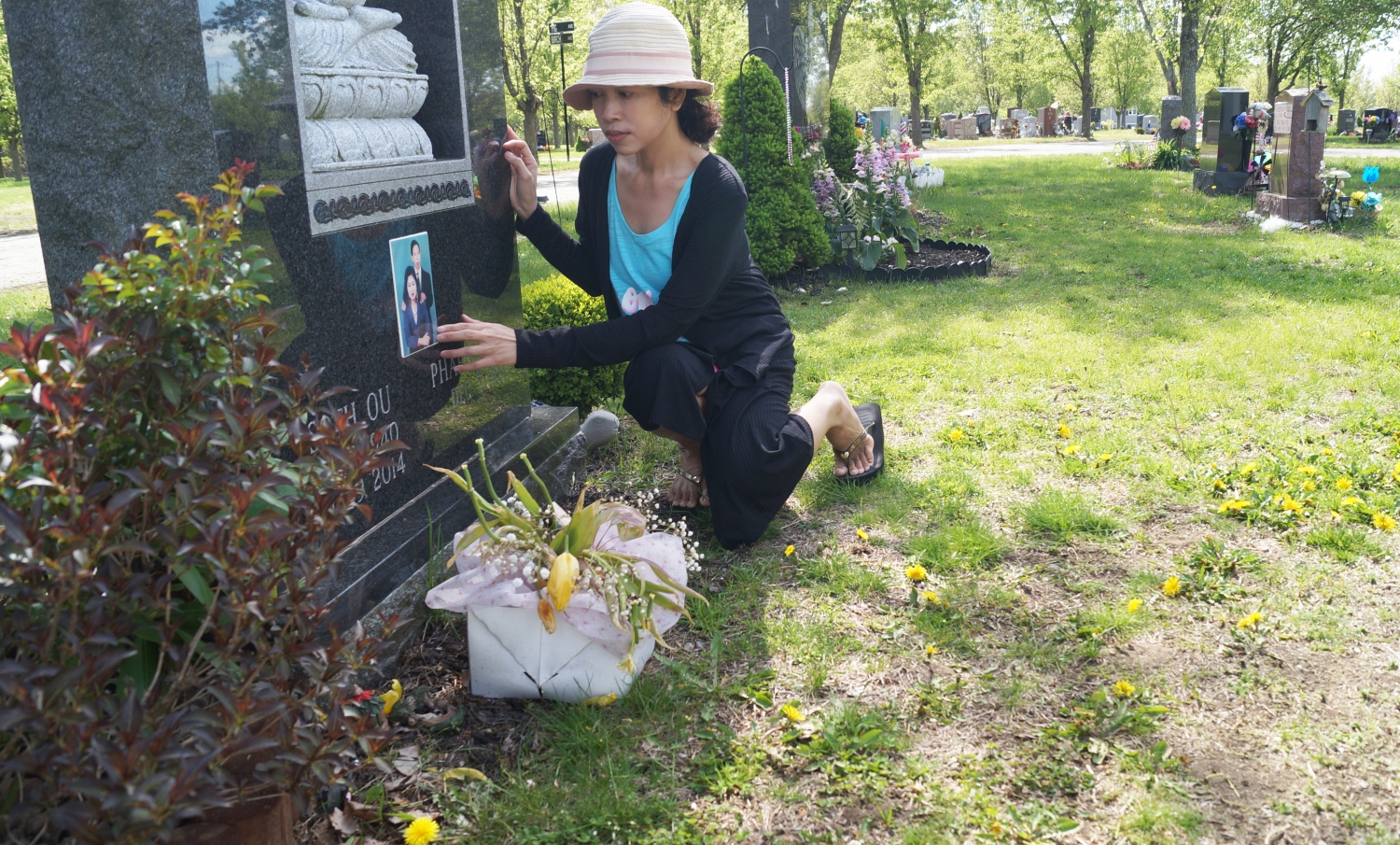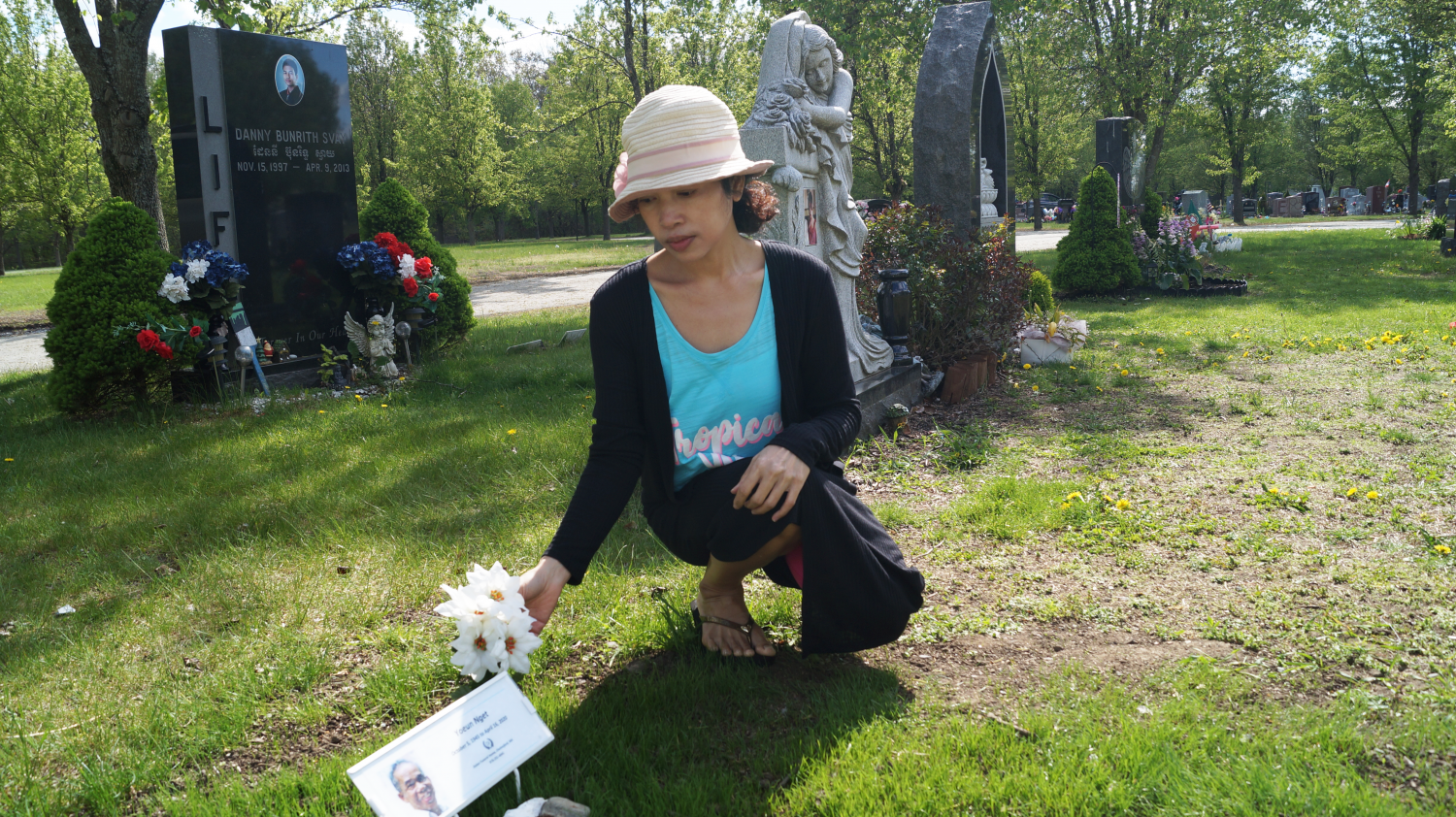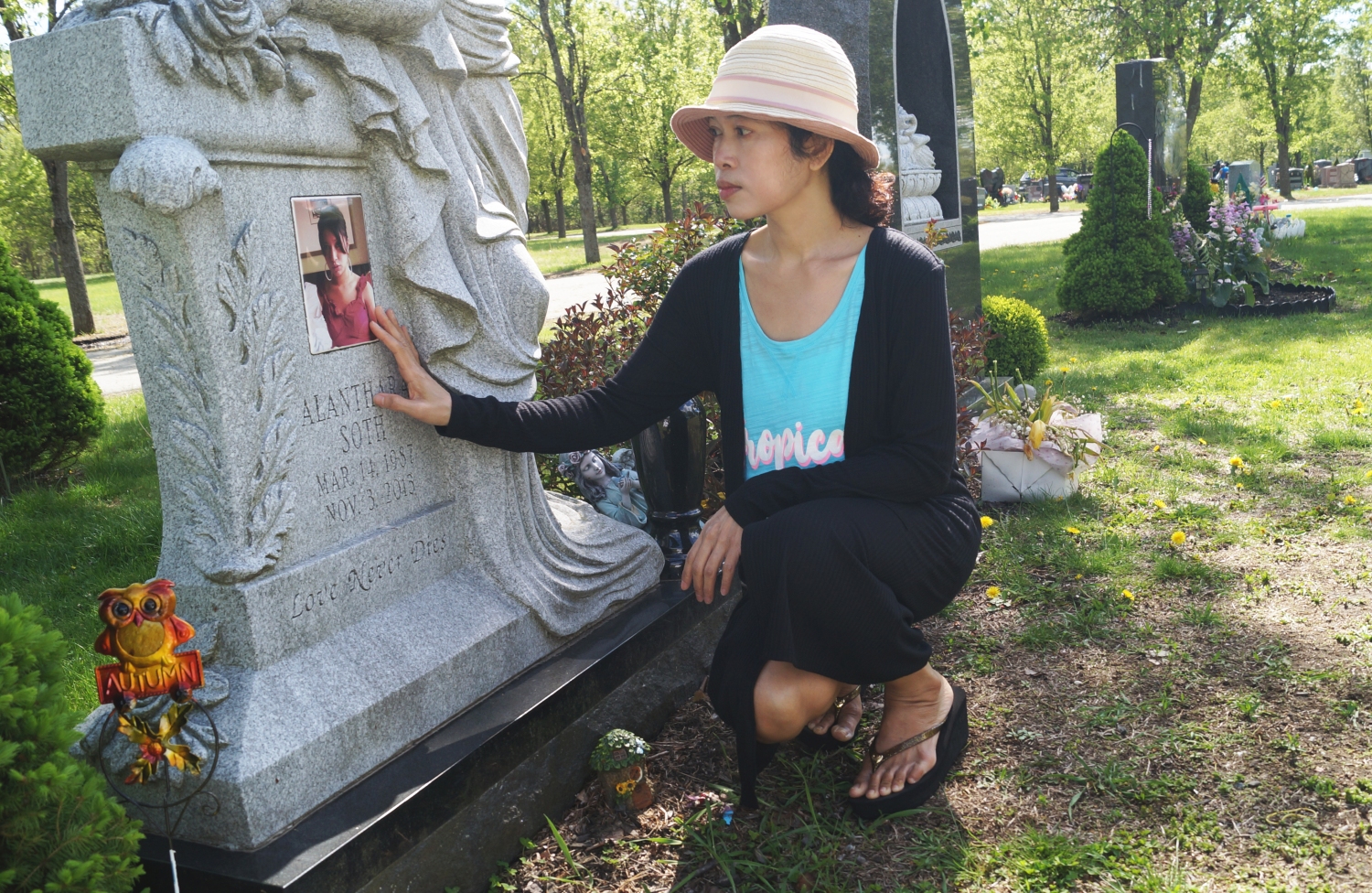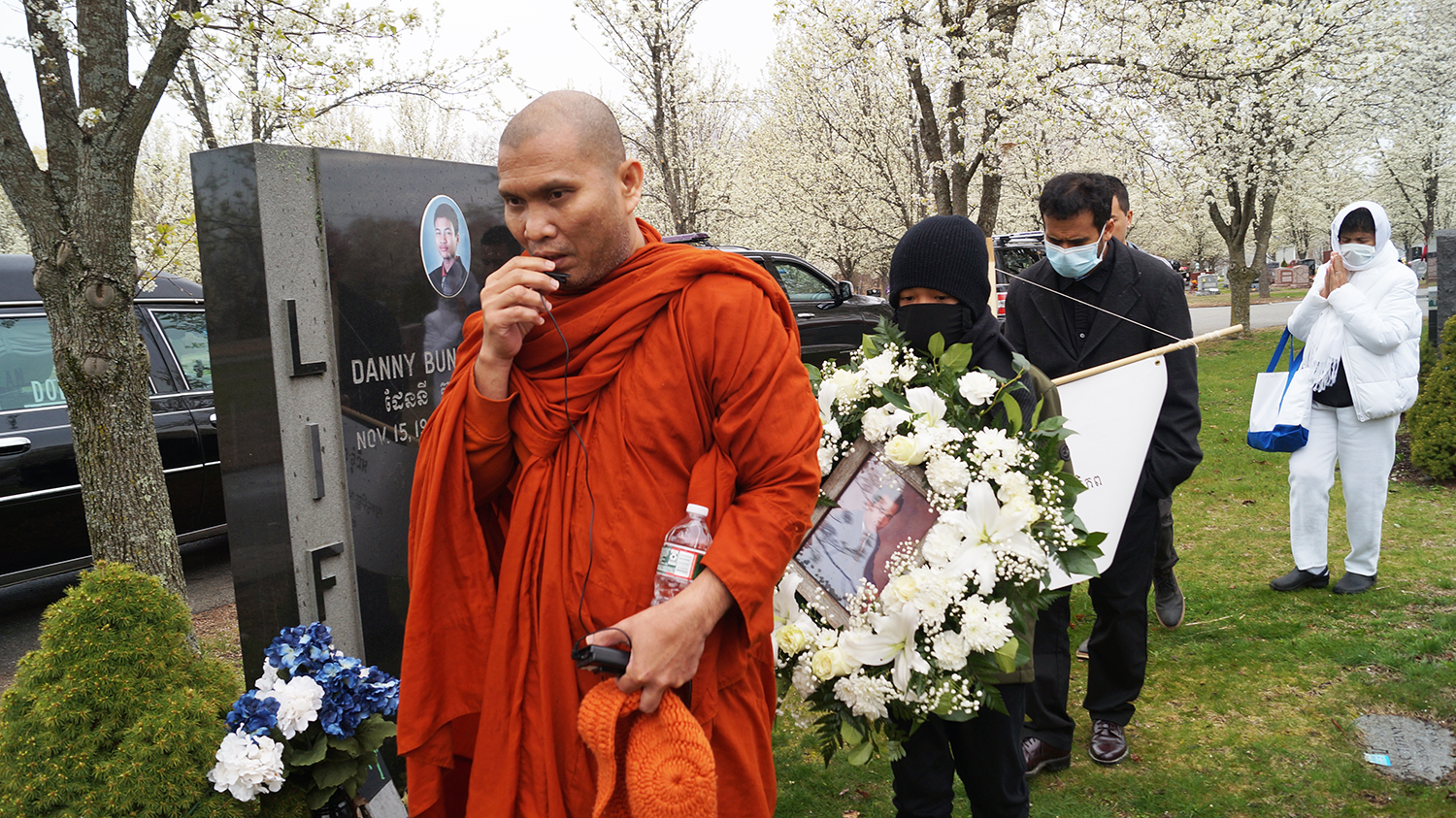-
Comment May 30, 2020
-
Learn this from water
Comment May 30, 2020 -
When true love is there
Comment May 30, 2020True love does not just choose one person. When true love is there, you shine like a lamp. You don’t just shine on one person in the room. That light you emit is for everyone in the room. If you really have love in you, everyone around you will profit—not only humans, but animals, plants, and minerals. Love, true love, is that. True love is equanimity. — Thich Nhat Hanh
-
If a person’s basic state of mind is serene and calm
1 May 22, 2020 -
Yoeun Nget’s funeral service on April 24, 2020
Comment May 19, 2020The secret of health for both mind and body is not to mourn for the past, nor to worry about the future, but to live the present moment wisely and earnestly. ~ Buddha
-
Let him find pleasure therein
1 May 9, 2020Saying ‘goodbye’ to Uncle Yoeun at the graveyard on April 24, 2020. Uncle passed away on April 16, 2020 (the final day of Khmer New Year). He’s now resting next to little sister Alanthara and my wonderful father…
Should a person do good, let him do it again and again. Let him find pleasure therein, for blissful is the accumulation of good. ~ Buddha
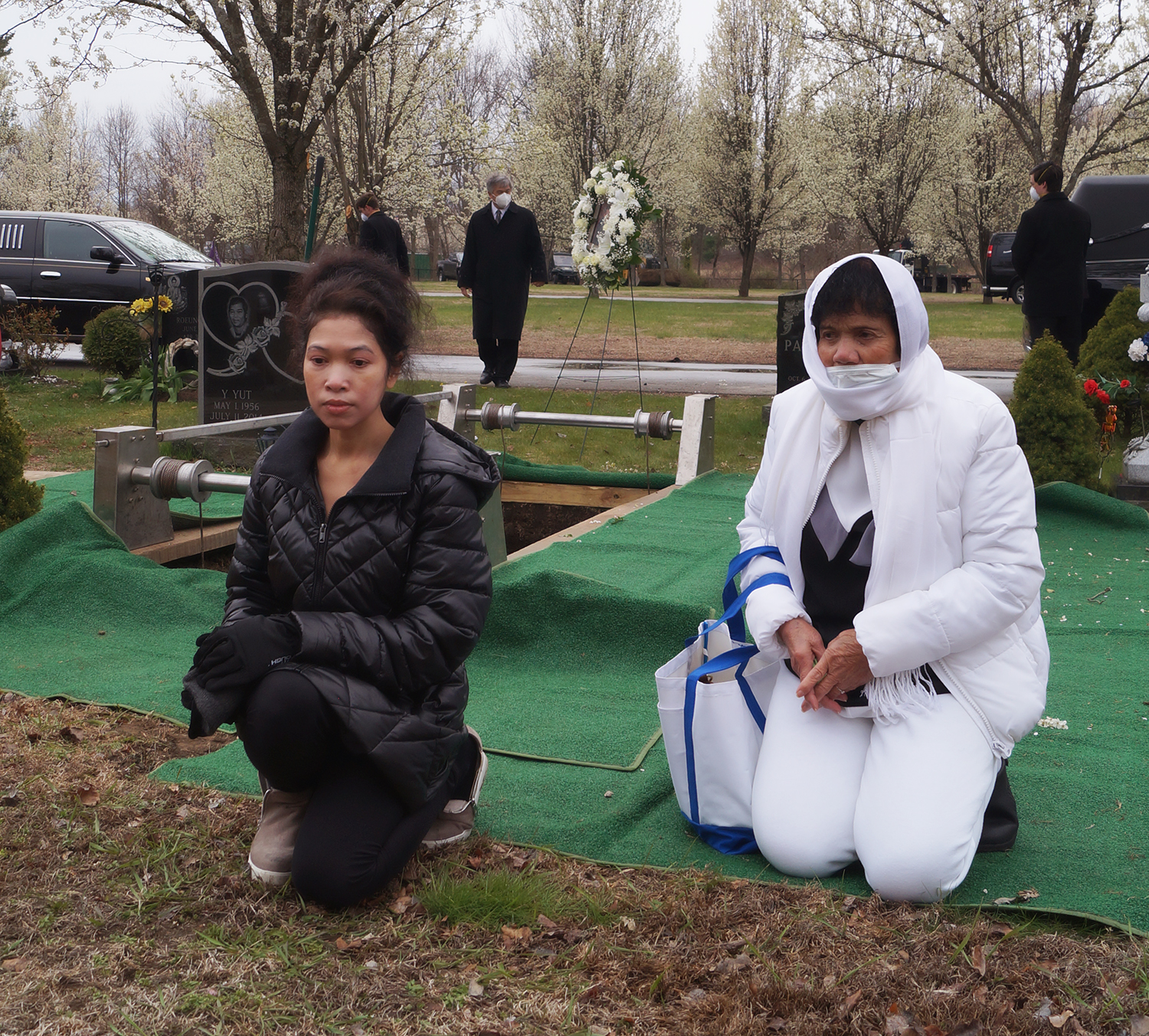
Jendhamuni and auntie San at uncle Yoeun’s graveyard on April 24, 2020. Uncle passed away on Thursday April 16, 2020.
-
Though you can not always see the light at the end
1 April 16, 2020Making one person smile can change the world maybe not the whole world, but their world. ~Unknown
Sometimes life is like a dark tunnel. Though you can not always see the light at the end, if you keep going you will eventually get to a better place. ~Uncle Iroh
-
Live in each season as it passes
1 April 14, 2020 -
They’re still beautiful
1 April 14, 2020 -
The Story of Tambadathika
Comment April 13, 2020Verse 100: Better than a thousand words that are senseless and unconnected with the realization of Nibbana, is a single word of sense, if on hearing it one is calmed.
The Story of Tambadathika
While residing at the Jetavana monastery, the Buddha uttered Verse (100) of this book, with reference to Tambadathika, the executioner of thieves.
Tambadathika served the king as an executioner of thieves for fifty-five years; he had just retired from that post. One day, after preparing rice gruel at his house, he went to the river for a bath; he had intended to take the specially prepared rice gruel on his return. As he was about to take the rice gruel, Thera Sariputta, who had just arisen from sustained absorption in Concentration (jhana samapatti), stood at his door for alms-food. Seeing the thera, Tambadathika thought to himself, “Throughout my life, I have been executing thieves; now I should offer this food to the thera.” So, he invited Thera Sariputta to come in and respectfully offered the rice gruel.
After the meal, the thera taught him the Dhamma, but Tambadathika could not pay attention, because he was so agitated as he recollected his past life as an executioner. When the thera knew this, he decided to ask Tambadathika tactfully whether he killed the thieves because he wished to kill them or because he was ordered to do so. Tambadathika answered that he was ordered to kill them by the king and that he had no wish to kill. Then the thera asked, “If that is so, would you be guilty or not ?” Tambadathika then concluded that, as he was not responsible for the evil deeds, he was not guilty. He, therefore, calmed down, and requested the thera to continue his exposition. As he listened to the Dhamma with proper attention, he came very close to attaining Sotapatti Magga, and reached as far as anuloma nana.* After the discourse, Tambadathika accompanied Thera Sariputta for some distance and then returned home. On his way home a cow (actually a demon in the guise of a cow) gored him to death.
When the Buddha came to the congregation of the bhikkhus in the evening, they informed him about the death of Tambadathika. When asked where Tambadathika was reborn, the Buddha told them that although Tambadathika had committed evil deeds throughout his life, because he comprehended the Dhamma after hearing it from Thera Sariputta and had already attained anuloma nana before he died, he was reborn in the Tusita deva world. The bhikkhus wondered how such an evil-doer could have such great benefit after listening to the Dhamma just once. To them the Buddha said that the length of a discourse is of no consequence, for one single word of sense can produce much benefit.
Then the Buddha spoke in verse as follows:
Verse 100: Better than a thousand words that are senseless and unconnected with the realization of Nibbana, is a single word of sense, if on hearing it one is calmed.*anuloma nana: Vipassana Insight which causes the namarupa process of the yogi to become fully adapted for Magga Insight.
Dhammapada Verse 100
Tambadathika Coraghataka VatthuSahassamapi ce vaca
anatthapadasamhita
ekam atthapadam seyyo
yam sutva upasammati.Source: Tipitaka




